Athletes run to end FGM in Sebei region
Over 100 runners, including children and the elderly participated in the marathon as part of their contribution towards creating awareness on the dangers of FGM.
Athletics is one of the biggest sports that the people of Sebei region treasure and call it their sport.
The region has produced great athletes, like Stephen Kiprotich, Moses Kipsiro, Simon Ayeko, and Joshua Cheptegei among others who have excelled globally.
With athletics being, Sebei region's favorite sport, on Saturday Church of Uganda in Partnership with the Ministry of Gender, Labour and Social Development, the Uganda Athletics Federation, supported by the United Nations Population Fund (UNFPA), organized the third anti-Female Genital Mutilation (FGM) marathon in Kapchorwa district.
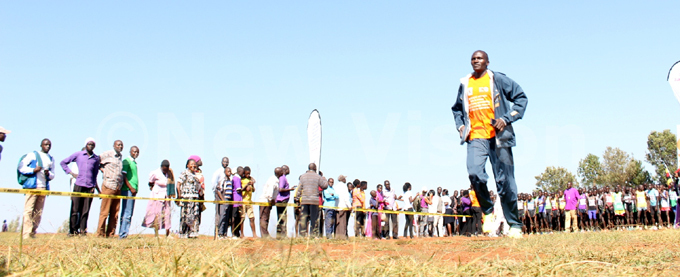 Kiprotich warming up
Kiprotich warming up
The event that attracted thousands of locals from Kapachorwa, Kween and Bukwo districts was held at Boma grounds under the theme: "Run to End FGM: Protect the Health of Women and Girls" Over 100 runners, including children and the elderly participated in the marathon as part of their contribution towards creating awareness on the dangers of FGM.
The first and second marathons were held in 2015 and 2016 in Bukwo and Kween districts repspectively.
The Archbishop of Church of Uganda Stanley Ntagali, participated in the marathon and challenged the people of Sebei region and Karamoja region where FGM is practiced to drop the harmful act.
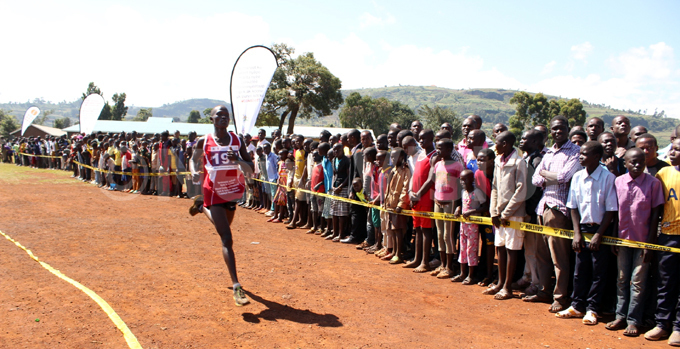
"The Sabiny have a rich culture, we appreciate and encourage you to preserve it, however FGM should be droped, it traumatises the lives of girls and women," Ntagali said.
He challenged the elders to shun the practice look for alternative ways of promoting cultural values.
He said with improved social services in the region FGM is likely to be eliminated as per the United Nations target of 2030.
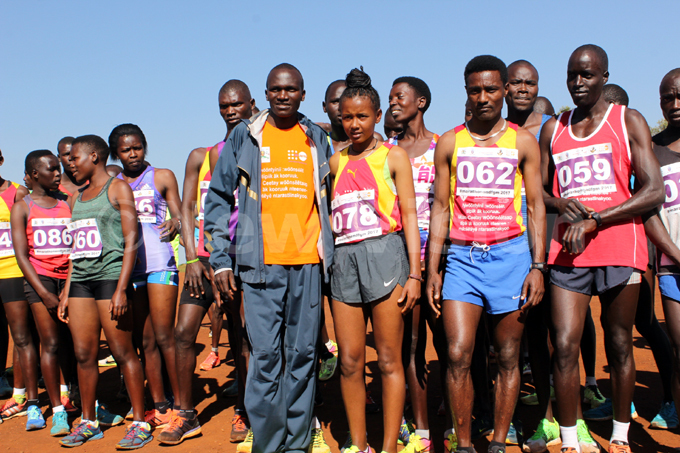 Stephen Kiprotich (Orange t-shirt) with some of the marathon runners in Kapchorwa
Stephen Kiprotich (Orange t-shirt) with some of the marathon runners in Kapchorwa
"There are still hotspots in this region where FGM is practices, but with improved education and road network, there is a probability of eliminating FGM totally," Ntagali said.
Alain Sibenaler, the UNFPA Country representative commended the efforts by various stakeholders towards the fight against FGM which continues to endanger the lives of women and girls.
"I am glad to be part of this very powerful movement that has joined in solidarity using athletic talent to say, ‘No more cutting of women and girls!" Sibenaler said.
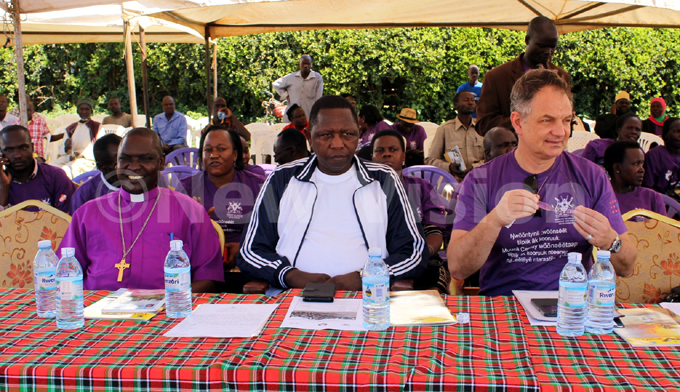 (L-R) Bishop Paul Masaba, Arhbishop of Uganda Stanley Ntagali and UNFPA Country Representative Alain Sibenaler at the function
(L-R) Bishop Paul Masaba, Arhbishop of Uganda Stanley Ntagali and UNFPA Country Representative Alain Sibenaler at the function
He noted that FGM endangers women and girls' health, depriving them of their fundamental human rights, and denying them the chance to reach their full potential and live their dreams.
Sibenaler said FGM is closely linked to other forms of gender inequality and harmful practices such as child, early and forced marriages.
Globally, FGM/C is recognized as a practice that is not only harmful to women and girls it also slows down progress on development.
FGM is the cultural practice which can range from cutting off the clitoris to the removal of the entire female genitalia.
Stephen Kiprotich, the former Olympic marathon champion says athletics is the best way to spread the message in Sabiny region.
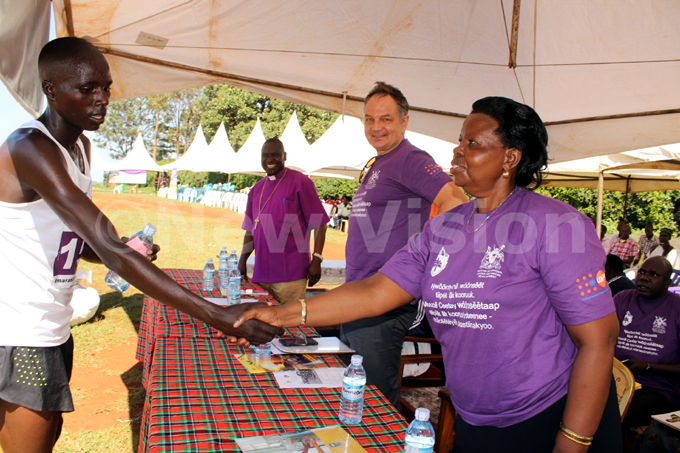 Joel Ayebo, the winner of the 10 kilometer run being congratulated by Jane Mpagi from the Ministry of Gender
Joel Ayebo, the winner of the 10 kilometer run being congratulated by Jane Mpagi from the Ministry of Gender
"It helps identify talent and also spread the message. Everyone who has come here will take home the message. As athletes in Kapachorwa we are against FGM," Kiprotich said.
Winners of the marathon were awarded with cash prize, gold medals and certificates. Frances Kuuka,the Kapchorwa Resident District Commissioner (RDC) who is a survivor of FGM commended government for coming up with a law that is also being implemented to end FGM.
The Prohibition of FGM/C Act 2010 criminalizes FGM and stipulates life imprisonment for the perpetrators. According to the Uganda Demographic and Health survey (2011) FGM prevalence in Uganda is at 1.4%. Whereas the numbers in Sebei region were over 90%.
A 2015 Baseline Study on FGM found that 91% of the population now does not support FGM. In Uganda, the practice is locally known as "wonsetap koruk" and is practiced in Northeastern Uganda among the Sabiny in Kapchorwa, Kween, Bukwo, and among the Tepeth, Pokot and Kadam communities in Karamoja region